Navigation auf uzh.ch
Navigation auf uzh.ch

"Carolin Lerchenmüller would prefer a different word for what she does: approaching medicine from a perspective that takes sex and gender differences into account". What follows is an engaging conversation about prejudice, progress, and the challenge of maintaining a positive view of humanity.
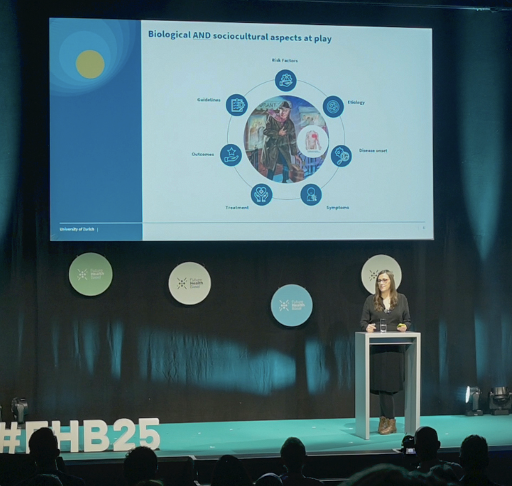
Carolin delivered a keynote on “The Importance of Sex and Gender Differences in Medicine,” emphasizing the need to give greater consideration to gender-specific aspects in research, education, and clinical practice.

Carolin opened the panel "The Future of Women’s Health" at the Hasso Plattner Institute in Potsdam with a keynote speech on the importance of gender medicine in research and clinical practice.

In the latest edition of the Female Shift newsletter, our Gender Medicine team and the key focus of our activities are presented.

Carolin was interviewed for an article in Bunte Gendermedizin about Gender Medicine. The focus of the article is on how medical treatments that once primarily considered men as the standard are now evolving.
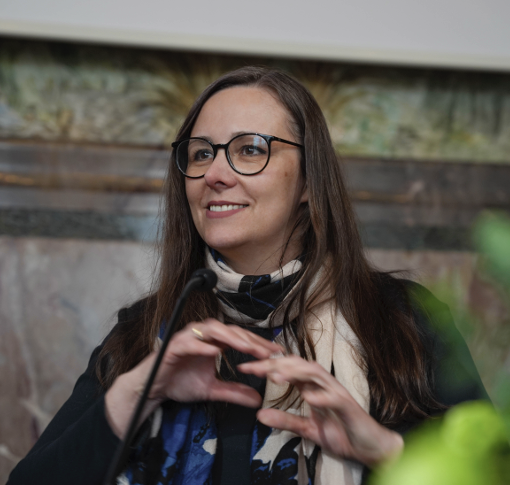
On March 15th, Carolin delivered at UZH her inaugural lecture titled "From Basic Science to Global Health – Why do we need Gender Medicine?". She highlighted the critical role of gender-specific research in advancing medical science and improving healthcare for all.
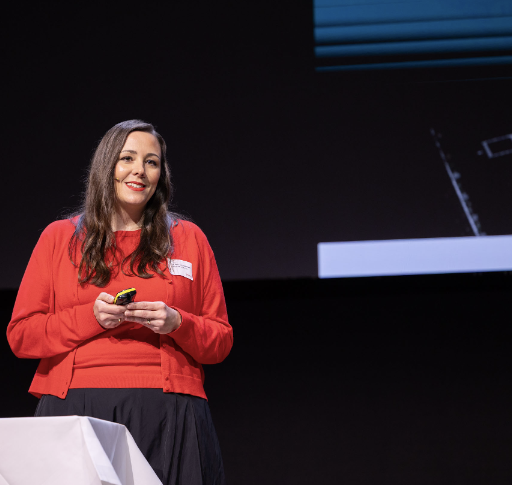
Carolin was a keynote speaker at the Advance event, delivering an insightful talk titled "Equity in Health Care: Why Gender Medicine Matters."

As a speaker at the 2025 Medical Congress in Davos, Carolin provided valuable insights into gender medicine and highlighted the importance of interdisciplinary dialogue.

How important is mentoring in medicine, especially in cardiology? What role does it play in career development, and how can one find the right mentor? In the 22nd episode of KardioBeat, Prof. Dr. David Duncker talks with Prof. Dr. Carolin Lerchenmüller about her experiences and insights in the field of mentoring.

Carolin became an invited member of the Gender Task Force of the European Society of Cardiology dedicated to tackling gender equity across the whole spectrum from patients to health care workforce.

“Gender medicine is not just a matter of equal opportunities, but a necessity.” Carolin Lerchenmüller explains why it is necessary to consider the composition of the leadership team, and why there is a sense of new beginnings in Switzerland.

Gender medicine specialist Carolin Lerchenmüller delivered an engaging talk on “Why is Gender Medicine Needed?” at the UZH Welcome Day, where over 150 new employees were welcomed and introduced to the university
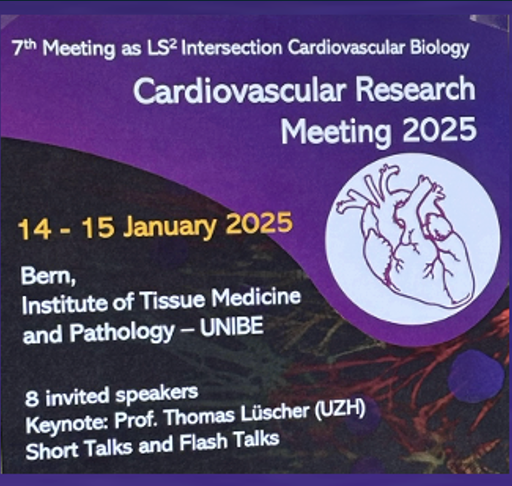
Carolin was invited to speak about the protective effects of exercise on the heart. This conference marked the first event our young team attended together, making it a significant milestone for the Chair.
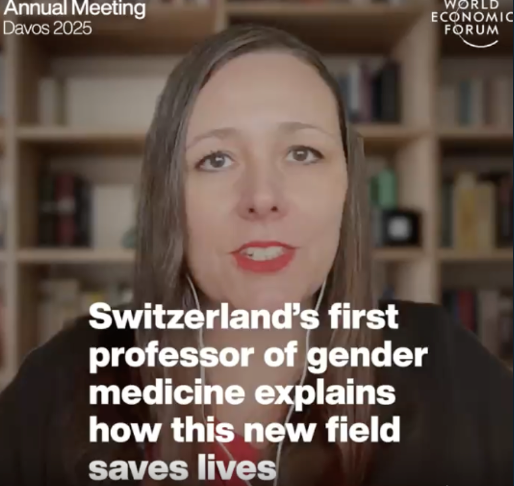
Despite living longer than men, women spend 25% more of their lives in poor health. Health burdens have a heavy impact on women’s lives, with ripple effects for broader society.

"What is a big myth about the female body?" – "That it is a small man." The first professor of gender medicine in Switzerland explains what the bikini syndrome is, why women change their behavior when visiting the doctor, and where men receive incorrect treatment.

1st year Medical Students: Introduction and Basics of Gendermedicine
4th year Medical Students: Clinical Relevance of Sex- and Gender-Aspects in Medicine
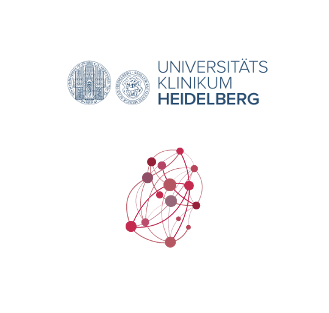
Bridging Disciplines – Advancing Sex and Gender-Related Research within Biomedicine: Carolin delivered a talk on the importance of Gender Medicine from both a national and international perspective.

Carolin Lerchenmüller is the Professor of Gender Medicine in Zurich. She is also a founding member of the Women in Cardiology group of the German Cardiac Society. In this interview, she talks about her career path and the challenges she faced as a woman in academic medicine.

Carolin Lerchenmüller talked about Gender Equity as the Basis for Excellence in Health Care in this DZHK Science of Friday Series dedicated to Sex and Gender in Cardiovascular Disease.

Carolin was invited to give a talk for the lecture series Diversity Medicine at the Ruhr Uni Bochum.

Carolin participated in the Networking Event of Medical Women Switzerland to talk about the need for Gender-sensitive Medicine.
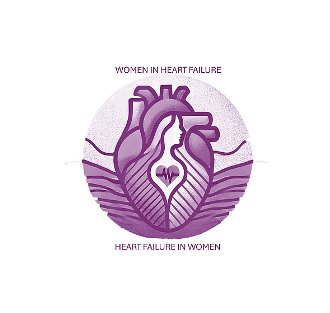
Carolin discussed the need for Gender Medicine, using heart failure as a case study.

Carolin was invited as a speaker to one of CTEC's webinars.

Carolin has been recognized as one of the Top 100 Women in Business and as one of four UZH professors to receive this honor. The Women in Business jury has selected women “who, in our view, reflect the broad and impressive spectrum of high-achieving professionals in Switzerland.

Women's hearts beat differently - Heart diseases often present differently in women than in men. This makes diagnosis more difficult, but not impossible.

Professor Lerchenmüller's goal is to integrate gender medicine as a cross-disciplinary subject into every medical specialization, especially since half of the population consists of women, who are still rarely included in clinical studies.

Caroline was invited to give a talk on Gender Equity in the Cardiovascular Research and Clinical Workforce

Switzerland now has a Professor of Gender Medicine and she’s here to stay. Carolin Lerchenmüller says it will take time to fully understand how and why women react differently to some diseases and treatments - but adds that that’s not necessarily a bad thing.
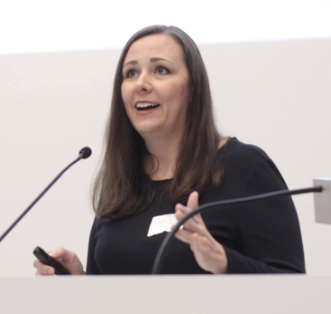
Carolin gave the concluding remarks at the Forum for Sex and Gender in Medicine hosted by Universität Luzern and participated at the foundation for the Swiss Society for Gender Health.
This event celebrated the conclusion of the swissuniversities project, which focused on integrating gender medicine into medical and health curricula.

Carolin attended the annual meeting of the European Society of Cardiology in London and gave an invited talk about the protective power of exercise on cardiovascular health.
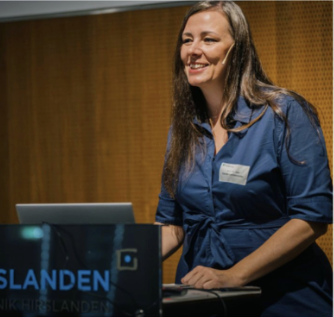
Prof. Dr. med. Carolin Lerchenmüller provided the participants of the Aiming Higher – Career Development for Female Resident Doctors program at the University of St. Gallen (HSG) with valuable insights into gender medicine and equal opportunities.
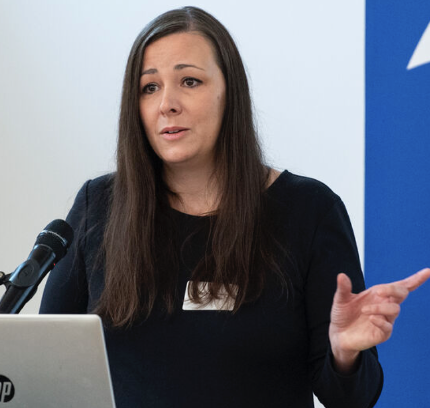
Carolin Lerchenmüller opened the conference "Gender Medicine and Public Health: A Plus for Overall Health" yesterday. The conference focused on the reciprocal influence of biological and sociocultural aspects in the medical context, explored biological and gender-specific differences, and examined measures to fully harness the potential of gender medicine.

The topic of the talk was "From Cardioprotection to Gender Medicine".

Everyone Has the Right to Equally Good Treatment - In May of this year, Carolin Lerchenmüller took over the first Chair of Gender Medicine in Switzerland. In an interview with Leading Opinions Wochenbulletin, the cardiologist shares her plans for the future.
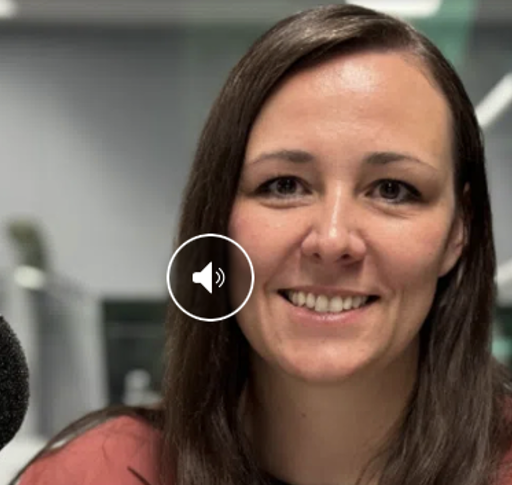
The cardiologist Carolin Lerchenmüller is the first professor of gender medicine in Switzerland. She criticizes: For decades, medicine has been a science by men, about men, for men. Gender medicine aims to change that—and in doing so, saves lives.

Cardiologist Carolin Lerchenmüller is the first professor of gender medicine in Switzerland. In the Talk im Turm, she discussed gender medicine and its importance with Beatrice Beck Schimmer, Director of University Medicine Zurich (UMZH).
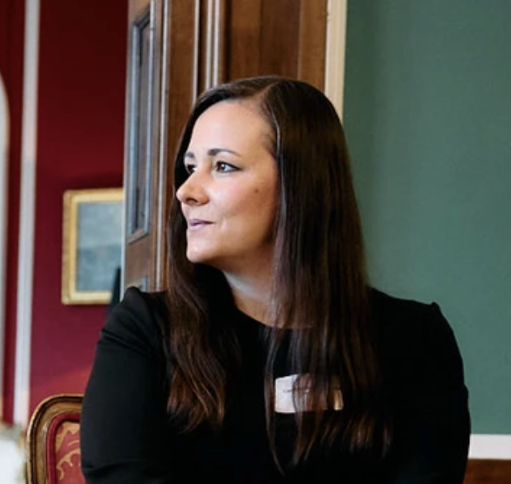
Despite significant advances in medicine and healthcare, gender differences in medical care remain a reality that we cannot ignore. This is particularly evident in women's health, where, despite a longer life expectancy, overall health outcomes are often poorer.
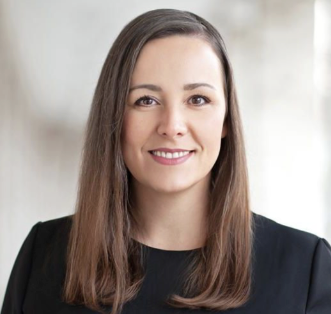
UZH has taken a step towards understanding and addressing the unique health needs of both women and men with the establishment of Switzerland's inaugural professorial chair in gender medicine. This initiative aims to rectify the historical lack of research attention given to sex- and gender-specific causes and symptoms of illnesses.
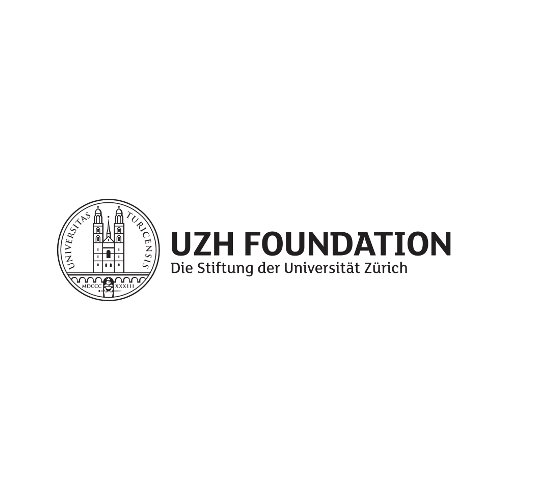
Women and men experience illness differently. Gender medicine aims to better understand these differences and integrate the findings into patient care and medical education. In May 2024, Carolin Lerchenmüller assumed the position as Switzerland’s first professor of gender medicine.
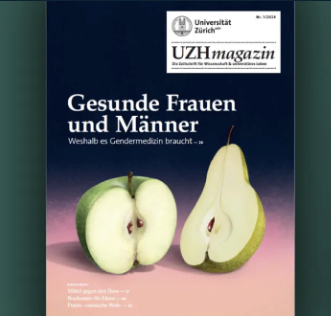
Many illnesses have sex- and gender-specific causes and symptoms, many of which have received little research attention thus far. That, however, is about to change. UZH has established the first professorial chair in gender medicine in Switzerland to advance research in this field.

First Professor of Gender Medicine in Switzerland: "Male scientists have focused on topics that affected men". In an interview, Carolin Lerchenmüller criticizes the lack of awareness in many areas of medicine regarding how significant the differences between male and female bodies can be.

The latest advancements in the Gender Medicine project include the approval of the National Research Program for Gender Medicine and Health, as well as the establishment of the first Chair of Gender Medicine at the University of Zurich (UZH), led by Prof. Dr. Carolin Lerchenmüller starting in May 2024.

An international team at the University Hospital Heidelberg investigated whether the heart can be rejuvenated through an exercise program – and discovered that the heart is far more capable of regenerating than previously thought. Physician Carolin Lerchenmüller explains what everyone can do for heart health.

Before the pandemic, both genders were almost equally likely to be first authors of studies in Covid-relevant areas. Then, the gap widened. Physician Carolin Lerchenmüller explains why our hearts are more adaptable than we thought – and how we can use this for our health.

The Amazing Ability of the Heart to Rejuvenate Itself: Physician Carolin Lerchenmüller explains why our hearts are more adaptable than we thought – and how we can use this for our health.
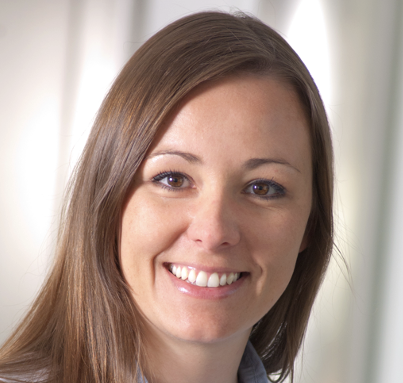
In its 120-year history, the Nobel Prize has been awarded to women exactly 59 times. Physician Carolin Lerchenmüller explains why this is the case and what needs to be done to ensure that women receive more recognition in research in the future.

Overall, women do not seem to suffer more from the pandemic than men – except when they are well-educated and, for example, work in science.

Active mice make more than four times as many new heart muscle cells, study says.